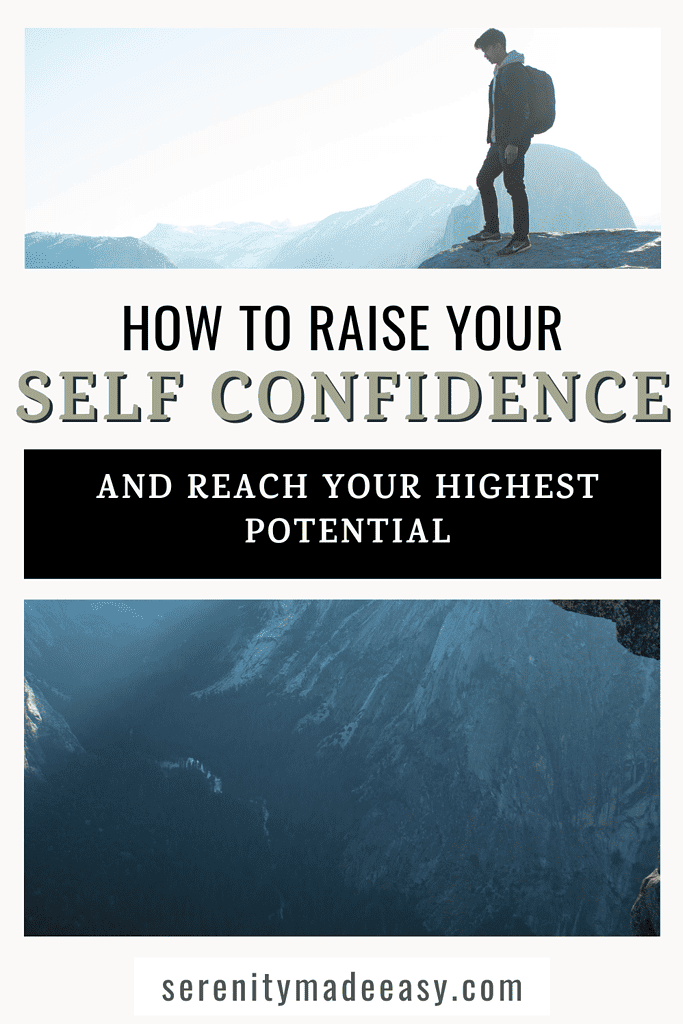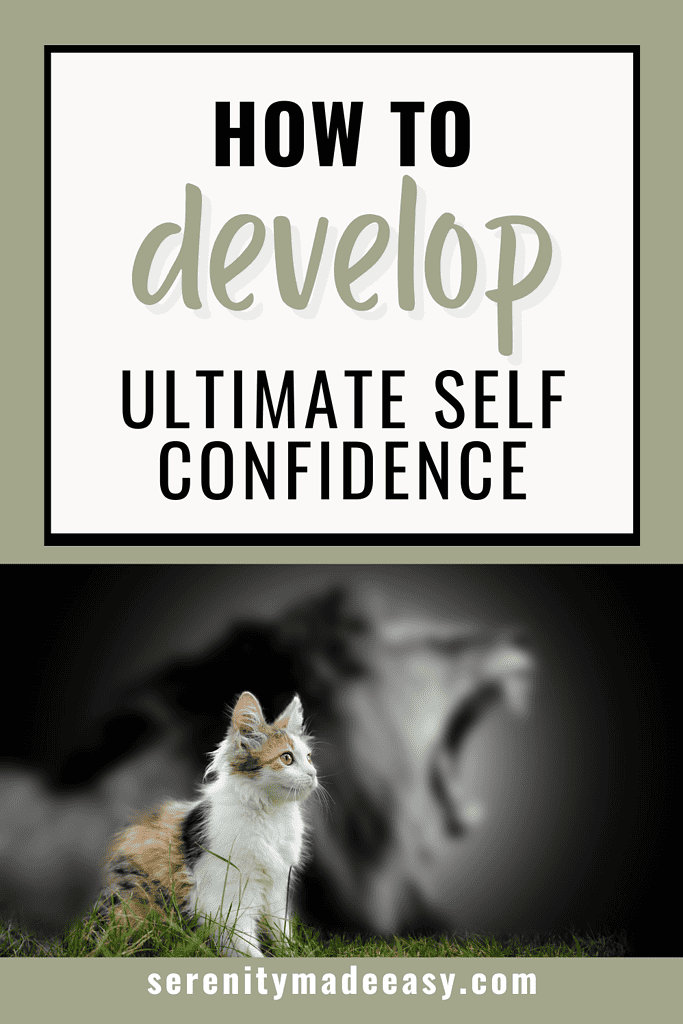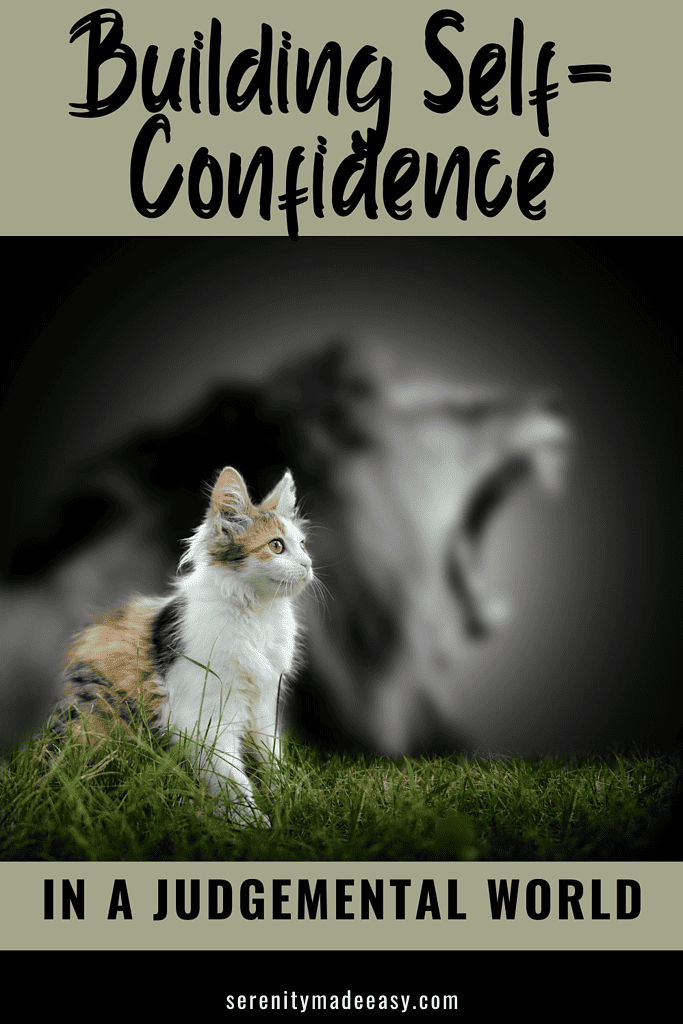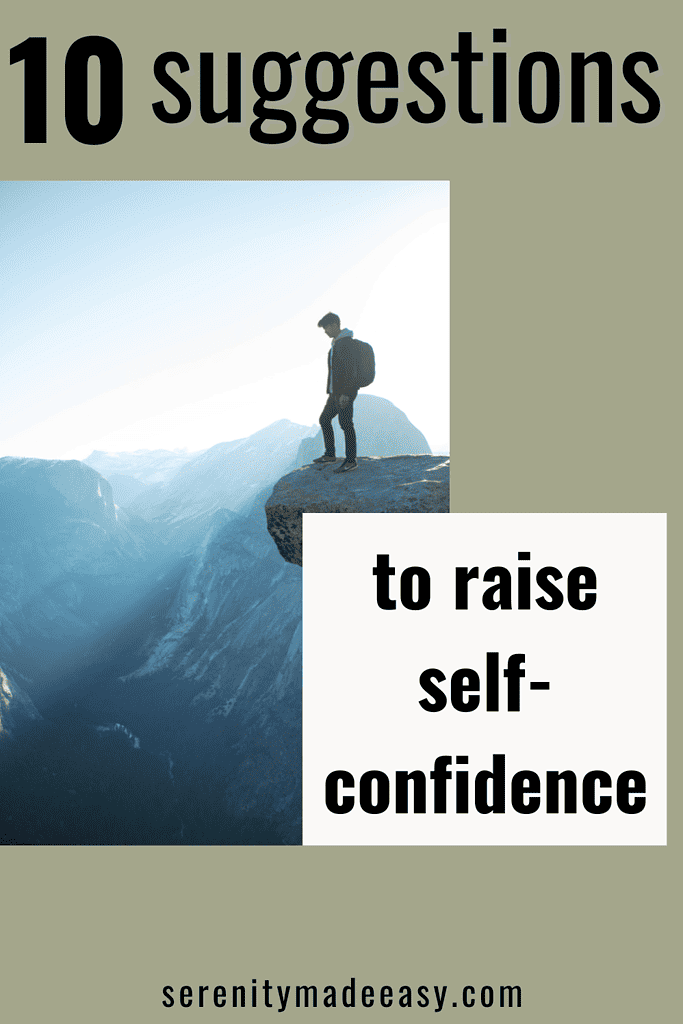This post may contain affiliate links. If you click one and make a purchase, I earn a small commission at no extra cost to you. It helps support the site so I can continue to offer great content to you!

Believing in something or someone without hesitation is what trust is all about. However, having faith in one’s own capabilities and potential to achieve what we desire is self-trust. Often, we tend to rely more on others rather than ourselves for different reasons. But, to live a satisfying life, it is crucial to have trust in oneself. This article outlines ten ways to help you build trust in yourself.
Why is trust in yourself essential?
According to psychology today, learning self-confidence leads to five distinct rewards.
- Less fear and anxiety
- Greater motivation
- More resilience
- Improved relationship
- Stronger sense of authentic self
Having faith in your abilities is a liberating feeling. It gives you a clearer understanding of what you can achieve and removes the fear of failure. You become capable of recognizing the positive aspects even in difficult situations.
When you try new and challenging things, you can experience growth that motivates you. Realizing that you can accomplish tough tasks will inspire you to push beyond what you think are your limits.
Having trust in oneself is crucial for building and exhibiting resilience. Even accomplished individuals experience setbacks and failures, but they have the determination to rise up and persist. This ultimately sets them apart from those who give up easily and never achieve success.
During your journey through life, you will encounter a variety of relationships. It is important to have trust in yourself, as this trait can help you cultivate healthy and mutually beneficial connections. By recognizing your own value and needs, you will be empowered to select relationships that are right for you.
Lastly, having self-confidence helps you stay true to who you are. You don’t need to change yourself or imitate someone else you look up to. You trust that your abilities are more than enough to reach your full potential.

10 suggestions to help build self-trust
Surround yourself with people who believe in you
The human mind can be complex. When it comes to developing trust in oneself, the surrounding environment plays a significant role.
When selecting companions, it’s crucial to opt for those who genuinely wish for your success. Take care of individuals who veil their mistrust with seemingly supportive guidance.
People who have faith in you will offer words of encouragement, provide support, and cheer you on as you progress toward your goals.
Leverage the help of others
We all have areas in which we can improve, but that shouldn’t stop us from striving for excellence.
The quickest and most effective method for enhancing your skills is to seek assistance from those who possess the expertise you desire. Don’t allow your pride to impede your development. Request aid from others, as many individuals derive satisfaction from aiding others.
Make a list of things you are proud of
Making a list of prior accomplishments that you are proud of is a great method to help build trust in yourself.
At times, it is possible to face obstacles that may seem insurmountable. Being able to review a list of previous successes (that probably once felt impossible) is a great confidence booster.
Make a list of your skills
Each individual possesses distinct abilities. A reliable approach to enhance your likelihood of accomplishment is to utilize your innate talents to reach a specific objective.
It can be helpful to have a list readily available to assist in addressing challenging situations that align better with your strengths.
One helpful tip for creating a list of your own skills is to reach out to friends, family, and colleagues who are familiar with you and ask for their input. You may find that this exercise is easier than expected with their assistance.
Go for difficult but low risk
A sure way to help increase trust in yourself is to try progressively more challenging things.
This can be scary at first. Therefore, it’s a good idea to look for things that are difficult but not risky. Let’s look at an example.
Improving your public speaking ability can start with reading books to children at the public library. By doing so, you can develop your skills of speaking in front of others without the pressure of creating or memorizing content.
Break down big goals
Pursuing a big and complex objective can be intimidating. You might feel less confident just by considering the workload, the tasks required, the time needed, or other related factors.
To make a goal less intimidating, divide it into several smaller goals. For each smaller goal, clearly define the objective, the steps required, and the timeline for completion.
As you make progress and check off smaller parts of your big goal, your confidence will increase, as well as your ability to handle difficult projects.
Be decisive
The inability to make a decision has a direct correlation with the trust you have in yourself.
Developing the ability to make timely and sound decisions is a skill that can be learned and improved over time. Having the confidence to process information, navigate uncertain situations, and take action through decision-making can greatly boost self-confidence.
A helpful tip to become more decisive is to practice making decisions on low-impact choices, such as what to eat for dinner, whether to purchase a new pair of jeans or what color to paint your room. These decisions do not pose any real risk or life-threatening situations, no matter what your final choice may be. Once you gain more confidence, you can gradually apply your decision-making skills to more challenging questions.
Learn lessons along the way
It’s important to accept that things may not always go according to plan.
If a situation doesn’t go as planned, it can shake your confidence. However, taking a moment to reflect on what happened and the lessons learned can help you regain your confidence.
Don’t be too harsh on yourself. Speak to yourself in the same way you would to a dear friend. If your friend was seeking guidance, what would you say to them? Remember that the solution lies within you. Discovering it will help you build confidence in yourself.
Journal daily
Taking time each day to journal and reflect on your accomplishments can be a helpful tool in building your confidence.
I suggest listing the things that you believe you have done exceptionally well, any surprising accomplishments, and rating your level of confidence. This activity will help you realize that you achieve more on a daily basis than you may initially recognize.
Don’t compare yourself
Your journey belongs only to you. It is unique and personal.
Don’t measure yourself against others. Your strengths, abilities, talents, and experiences make you one-of-a-kind. Attempting to replicate someone else’s life won’t grant you their life. You have a distinct purpose, a why that belongs solely to you.
Create the best life for yourself by doing things in your own unique way.
In conclusion
Gaining self-confidence is crucial for a successful and fulfilling life. I urge you to consider trying out the 10 strategies provided in this article to build trust in yourself. It is one of the most valuable gifts you can give yourself.
Cat xx



